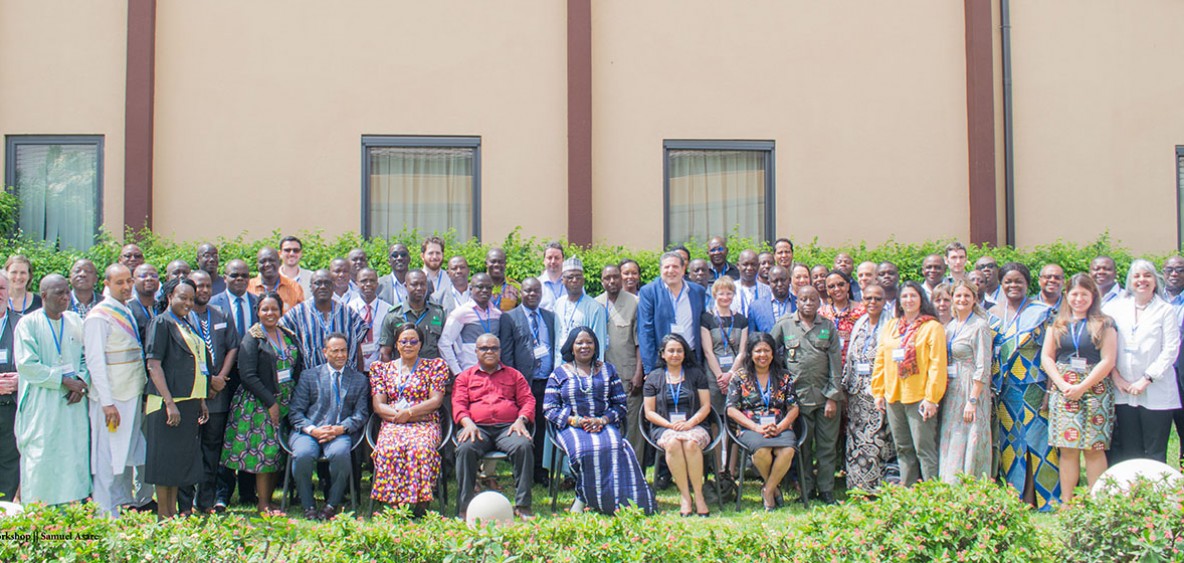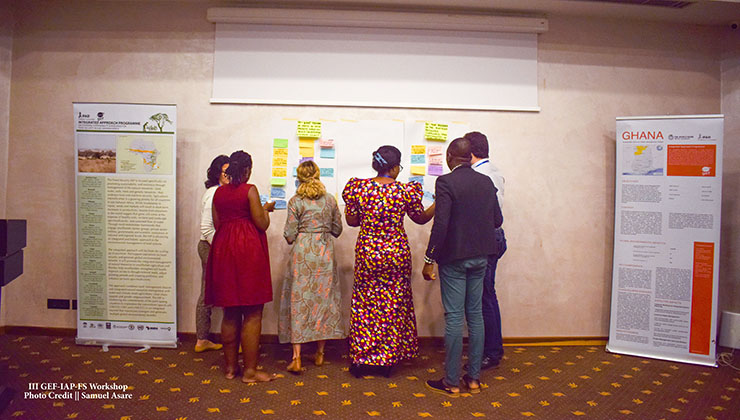
In March, RFS partners came together for the 3rd Regional Partners’ Forum. During the forum, participants learnt from each other, attended training sessions, and mapped future priorities.
In March 2019, the GEF funded Resilient Food Systems Programme convened partners from a broad spectrum of development partners, scientific organizations, private sector, sub-regional partners and government agencies and project managers from 12 countries to share experiences and advance progress on scaling up practices, methodologies and policy interventions in support of food security and environmental resilience in Sub-Saharan Africa.
As the programme embarked upon its 3rd regional partners’ forum in Bolgatanga, Ghana, participants’ sessions focused on learning - between country projects, through consolidated approaches to monitoring, and through targeted training - and on mapping future priorities with cross-cutting projects, knowledge management and communications.
Four of the country projects, Ghana, Niger, Uganda and Burundi, led the South-South exchanges, highlighting lessons on institutional, stakeholder and community engagement and progress on land and water management, restoration of degraded landscapes, biodiversity conservation, sustainable value chains, and payment for environmental services, among others. A full day field trip was organized through the Ghana Sustainable Land and Water Management Project (SLWMP, World Bank) during which participants had the opportunity to learn about Ghana project in detail while interacting with farmers, such as women engaged in empowerment activities, as part of the project’s approach to gender mainstreaming, extension agents and local government officials.
Designed to support the country projects, cross-cutting efforts including enhancing the science-policy interface (FAO,UNEP); upscaling integrated approaches through value chains (UNDP,AGRA) and rural advisory services (FAO); monitoring and assessment of global environmental benefits (Conservation International, UN Environment and Biodiversity International); as well as gender transformative approaches (GEF Secretariat, ICRAF), were presented inviting feedback from country projects for prioritizing their value addition services to scale up learning and implementation among the projects.
Facilitated training targeted the country project participants with sessions on earth observation for sustainable agricultural development and monitoring ecosystem service and socio-economic indicators, co-designing decision dashboards, and outcome mapping to articulate behaviour change needs associated with enhanced implementation.
Project monitoring and evaluation, knowledge management and communications play a critical role in ensuring programme outcomes and were emphasized throughout the workshop. IFAD’s reporting requirements and indicators were presented along with an intranet tool that is being developed through the Programme Coordination Unit (PCU) will be used to track - in an accessible way - learning, indicators and global environmental benefits. Participants were provided with an update for reactions and feedback on internal and external communication structures of the programme, including the website structure and design, the internal and external newsletter as well as content pillars for the social media for the programme.

Each of the workshop activities underscored elements of the Engage-Act-Track approach to the programme while bolstering concrete knowledge management and peer learning priorities among the country and cross-cutting projects. Country programme leaders outlined peer to peer learning topics based on successful country experience where topics included payment for environmental services, engaging policymakers, training media, livelihood practices, the farmer field school approach, and scaling up indigenous knowledge among others.
The workshop concluded with the first annual Consultative Committee (CC)meeting with representatives nominated by partnering countries and institutions offering strategic and policy guidance for achieving the programme’s objectives.
Additional resources:
Subscribe to our monthly newsletter to receive updates on stories directly from the field across all our projects, upcoming events, new resources, and more.